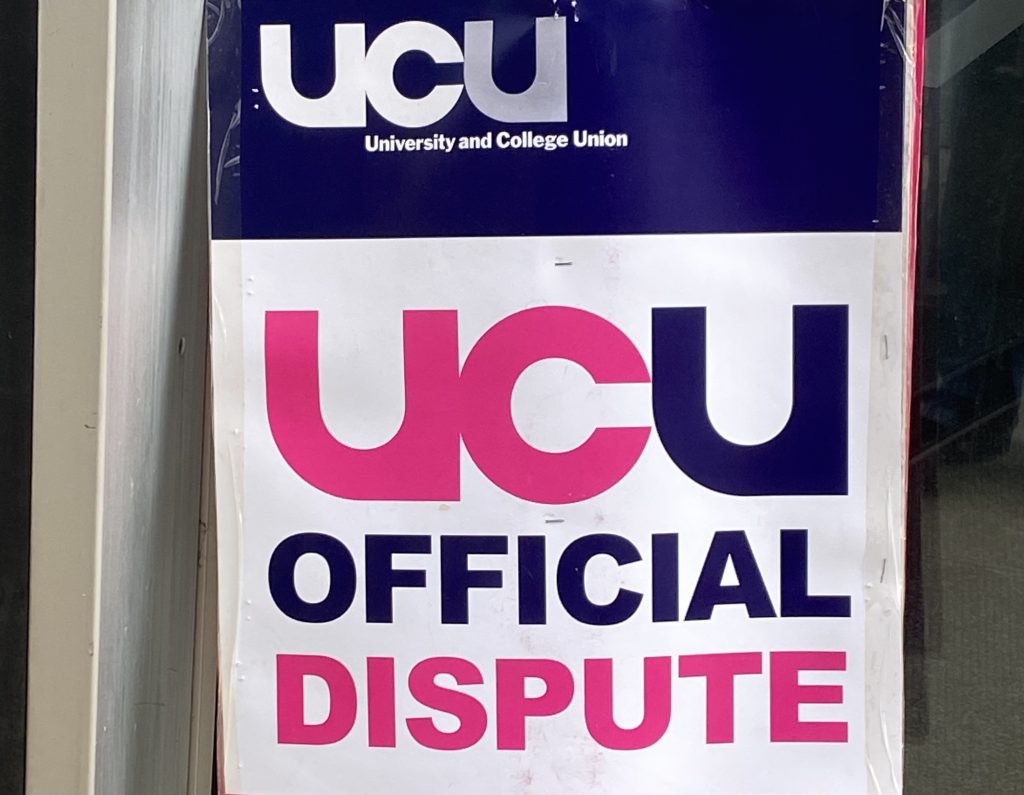
Picket lines were out at Salford University today as some teaching staff went on strike in protest over poor pay and conditions.
Today’s action by the University and College Union (UCU) was the first of three consecutive days in the national dispute over pay, equality, workloads, the elimination of casualisation and pension cuts.
Exeter are stronger than ever.
Exeter are voting YES.
Keep up the pressure. ✊
#ucuRISING https://t.co/fG3wmKiJ76— UCU (@ucu) February 14, 2023
The UCU is protesting that real pay has fallen by 25 per cent since 2009.
Members have turned down a pay offer of three per cent, well below the rate of inflation.
The UCU states: “Overwork, insecurity, and poor pay are impacting our work and student’s learning.”
Garry Morrisroe, who teaches radio production at the University of Salford, said: “They say that the higher education system is at breaking point but it is beyond breaking point, it’s actually broken.
“This isn’t fair. People cannot cope anymore. Our teaching conditions are the student’s learning conditions and that is impacting deleteriously on their education.”
The long-running dispute has been stepped up with two more three-day strikes taking place over the next two weeks.
Mr Morrisroe said: “There’s massive disparity between the pay between women and men, men still get paid a lot more than women, black people get paid a lot less than white people and disabled people get paid a lot less than people that aren’t disabled.
“There’s these huge socioeconomic and social justice issues that have been ongoing for many years. Now is the time.”
School will also be affected again this month in a National Education Union strike on February 28.
To contact the UCU go to UCU – Home or find it on Twitter @UCU
The UCU is in dispute with universities represented by the University and Colleges Employers Association.
A statement from its chief executive, Raj Jethwa, said: “The sector asked the trade unions to consult their members over this pay offer rather than push them into striking that targets students. UCEA’s final offer is an uplift of up to 8 percent, with a minimum of 5 percent for anyone earning between £31,000 – £65,000.
“This is the highest HE pay offer made in nearly 20 years, with many employers committed to implementing a proportion of this award six months early as a direct response to current cost of living concerns.
“The union knows that many HEIs’ finances are severely stretched in the face of falling real income and rising costs. It is hard to reach a settlement without a degree of realism. Our offer is a genuine attempt by employers to address cost of living pressures.”















Recent Comments